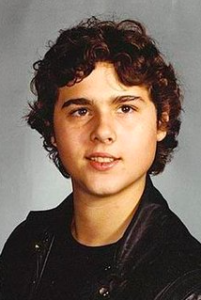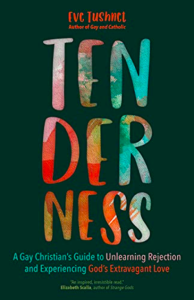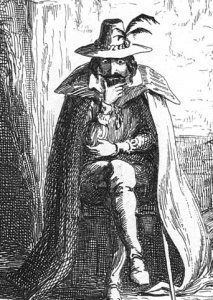THIS SERIES DEALS WITH SEXUAL ABUSE. PLEASE READ WITH CAUTION.
AN INTRODUCTION AND FURTHER DISCLAIMERS
MAY BE FOUND HERE.
O Lord, who didst fall upon thine Apostles in tongues of fire: Inflame our hearts, we beseech thee, with a spirit of courage and wisdom, of faith and charity; that, as we serve thee upon earth, we may shine like stars in the universe, shedding forth thy glory to every creature; Grant this, we pray, through Jesus Christ our Lord, who liveth and reigneth with the Father and with thee, ever one God, world without end. Amen.
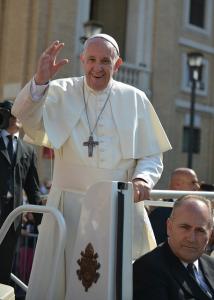
Previous installments: The Victims; The Monster and the Mirror; The Bishops’ Gambit; Pope John Paul II; Pope Benedict XVI.
The Archbishop of Buenos Aires
Jorge Bergoglio was born in 1936 in Buenos Aires. He was a Jesuit from about 1960 until 1992,1 when he became a bishop in his native city. (Jesuits take certain unusual vows relating to obedience and ambition; if the Pope makes a Jesuit a bishop, they quasi-leave the order.) Much of his episcopal ministry dealt with the poor; as he has been famous for doing as Pope, so as bishop, he performed the Maundy Thursday foot washing ritual in prisons, slums, and hospitals. He also faced tension between the Catholic Church and the right-wing dictatorship ruling Argentina. He was highly critical of the “Dirty War,” a six-year period of state terrorism in which as many as thirty thousand people disappeared. Alicia Oliveira, an Argentinian judge, stated that Bergoglio helped a number of people flee the country in secret.
Pope John Paul II gave Archbishop Bergoglio the red hat in 2001, and he participated in the conclave that elected Pope Benedict four years later—indeed, he was one of the papabili at the time and earned a large number of votes in early rounds. According to La Stampa (a daily newspaper published in Turin, Italy), he pled emotionally with the college not to elect him. In late 2011, he submitted his resignation as Archbishop of Buenos Aires to the Pope. However, since he had no assistant bishop or other clear successor, he consented to remain in office until a successor emerged.
Then came Pope Benedict’s 2013 bombshell and the ensuing conclave. This time, the vote fell upon Bergoglio decisively. He assumed the throne under the name Francis—the first Pope to coin a new regnal name (rather than taking the name of a predecessor) since the tenth century.2
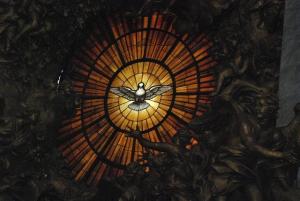
After the Conclave
What did Pope Francis know about McCarrick, and when?
His Holiness seems to have taken office with less knowledge of the McCarrick affair than Benedict, let alone John Paul. He knew Cardinal McCarrick casually, from his international travels. These had occasionally taken him to Argentina, particularly due to his links with the Institute of the Incarnate Word (which began in South America). But the rumors and accusations were local, almost confined to New Jersey, where McCarrick’s first two sees were. Neither of the last two Popes had placed formal sanctions on him. Cardinals Re and Ouellet, sometimes directly and sometimes with the US nuncio as intermediary, had sternly advised him to observe a private life of prayer. But neither they nor the Pope had issued this as a command. (Moreover, Cardinal Ouellet himself apparently thought the advice was entirely concerned with the risk of scandal. I’m not sure he recognized the possibility that the charges were true.)
Over the next few years, little changed. McCarrick remained active in public ministry, charity and administrative work for the USCCB, and international travel. Neither Pope Emeritus Benedict nor Pope Francis recollected discussing McCarrick during the transitional period; Cardinal Bertone did not raise the subject with Francis either.
Becciu and Viganò
Archbishop Giovanni Becciu had served at the US nunciature with Montalvo, and was now working for the Vatican Secretariat of State. He mentioned McCarrick’s ongoing public career to the Holy Father a couple of times between 2013 and 2016. The Pope supposed, given John Paul II’s moral strictness, that the allegations against McCarrick must have been proven groundless. Archbishop Becciu does not seem to have pursued the issue. Due the flaws of Montalvo’s inquiry, Becciu knew only the barest outline in any case—i.e., that McCarrick had been told not to continue his public career in light of the allegations against him. He apparently did not know the precise nature of the allegations, or the evidence that backed them up.
I would be remiss not to note that Cardinal Becciu has some scandals of his own. He apparently has links to several shady financial affairs, including embezzlement. He hasn’t lost his Holy Orders or his title, but Pope Francis removed his right to vote in papal conclaves this past September.
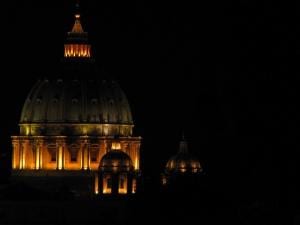
Pope Francis also met the US nuncio in 2013. I’ll be discussing Archbishop Viganò in greater detail later. For the present, the following will suffice. His Holiness says he doesn’t recall what, if anything, the Archbishop said about McCarrick at that time; but he does say that, had Viganò spoken with any “force or clarity” about the matter at all, he (the Pope) would remember it, especially since he was acquainted with McCarrick. Vatican files show no sign that Archbishop Viganò wrote anything about McCarrick to the Pope, so if the Archbishop did say anything, it seems strange that he didn’t follow up. In 2016, at 75, Viganò retired. (Archbishop Christophe Pierre, a longtime Vatican diplomat, replaced him as nuncio; he is still in office.)
New Allegations, New Investigation
The situation changed dramatically in 2017. The Archdiocese of New York received a complaint against McCarrick dating to the 1970s. This complaint, unlike any previous testimony (except Mother 1’s), involved molesting a minor. Cardinal Archbishop Timothy Dolan informed the civil authorities. He also wrote to the Vatican Secretariat of State in September (disciplining bishops falls under the Pope’s jurisdiction). The next month, the Vatican instructed Cardinal Dolan to conduct a complete investigation of McCarrick, and send his findings to the CDF. It would then discuss the matter with the Pope.
A five-month investigation followed. It found the allegations “credible and substantiated.” In 2018, Cardinal Dolan recommended that McCarrick be “permanently removed from public ministry and placed on a life of ‘prayer and penance’”; he also said the case should be made public, since the charges involved a minor. Archbishop Becciu gave Pope Francis the news, later saying he appeared shocked to hear it. The decision became public in June, and the Pope removed McCarrick from the College of Cardinals in July.
CDF proceedings continued after this, to determine the full extent of McCarrick’s offenses and decide on punishment. In January of 2019, the CDF “issued a decree finding McCarrick guilty of solicitation during the Sacrament of Confession and sins against the Sixth Commandment with minors and adults, with the aggravating factor of the abuse of power.” The CDF recommended laicization.3 McCarrick appealed this decision, but Pope Francis refused the appeal. The former Cardinal has been Mister McCarrick since February of 2019.
Verdict?
By my lights, Pope Francis did his job. Considering the information he had and when he had it, he appears to have acted responsibly at each stage.
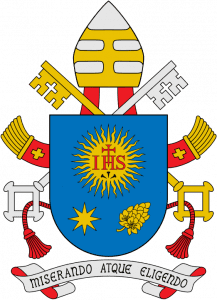
Pope Francis’ coat of arms (source).
But if there’s an Æsop to glean from this whole wretched business, it’s surely Call no man holy until he is dead, and maybe wait a while even then. After all, the report is the work of Vatican officials, and Pope Francis is their boss. How far can we trust this report? Does it select or color its facts to make His Holiness look good? I don’t honestly know how to answer that. There’s a lot in it that seems like it’d be hard to lie about or spin—but then, look at McCarrick’s own career.
There’s also the fact that Pope Francis has (to my knowledge) never personally attacked his enemies, who have eagerly attacked him. Men like Archbishop Viganò and Cardinal Burke and Taylor Marshall have made slanderous, divisive statements about him, publicly, for years. They’ve not only questioned, ridiculed, and attacked his ministry and character, but have gone as far as implying that his papacy isn’t legitimate. One would expect a dishonest man with the powers of the papacy at his disposal to move against them before now. I don’t know exactly what weight to give that evidence, but whatever weight it has seems to be in Francis’ favor.
The future may reveal skeletons in the Holy Father’s closet. But based on the evidence we currently have from public records, the report seems perfectly credible to me. I’m cautiously optimistic, with emphasis on the caution. And, whatever the truth is and whatever we think of him, he’s the Pope. We’re stuck with him until he too abdicates or dies. Let us pray for him.
Further installments: The Venom of Viganò; Den of Thieves; Quo Vadis
1He enrolled as a novice in 1958, so I think he’d have taken his first vows in 1960. Strictly speaking, members aren’t full-fledged Jesuits until they take the Society’s unusual fourth vow, which is to go anywhere in the world the Pope sends them to do missionary work. Most members have to wait several years between professing the normal vows (poverty, chastity, and obedience) and receiving permission to take the fourth vow.
2That last newly-coined name, by the way? Lando.
3I.e., that McCarrick be defrocked.



